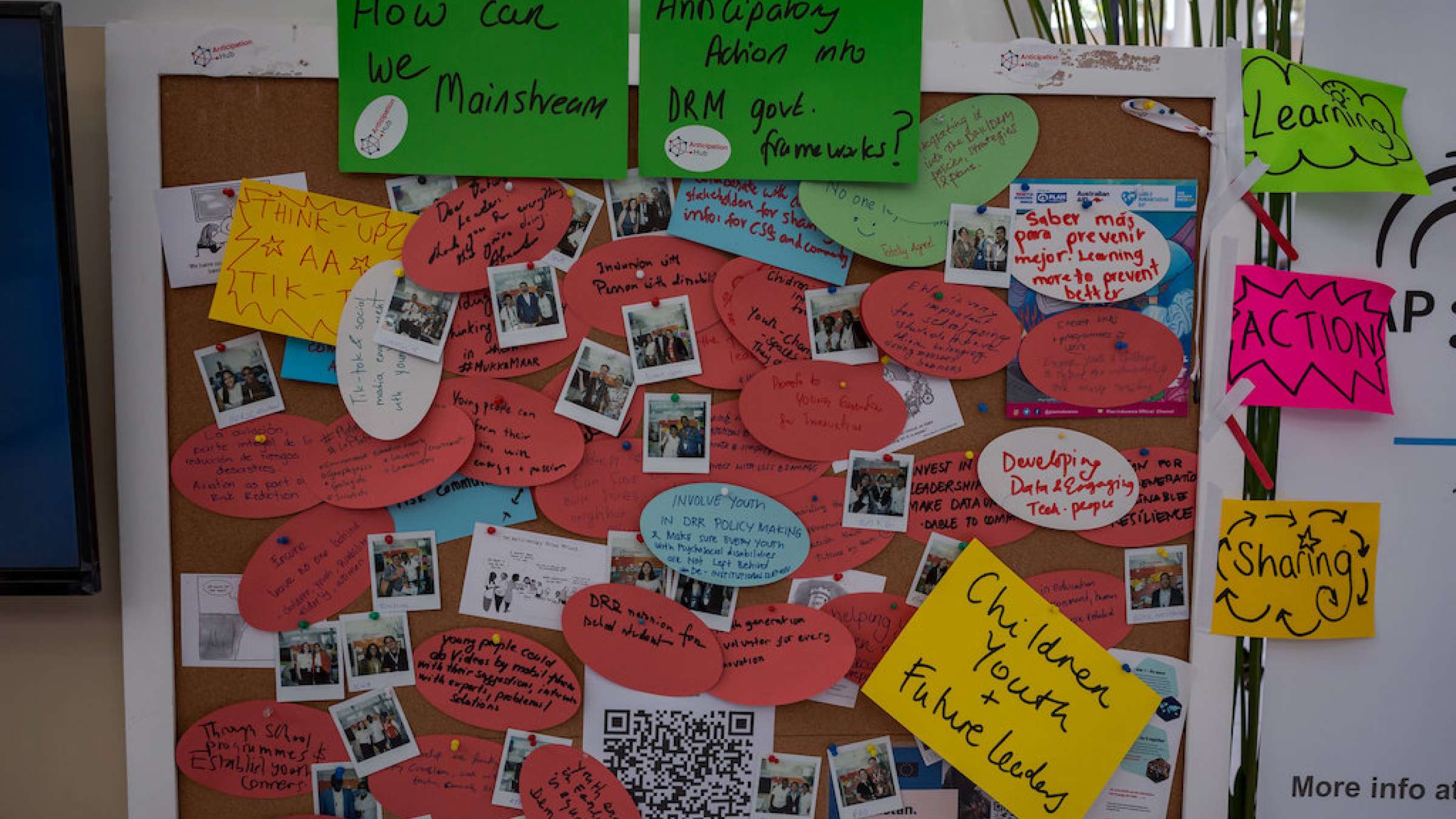Main themes
Disaster Risk Governance
Disaster risk governance refers to the system of institutions, mechanisms, policy and legal frameworks and other arrangements to guide, coordinate and oversee disaster risk reduction and related areas of policy. The COVID-19 pandemic has challenged the traditional understanding of risk and disaster risk governance. The systemic nature of risks, where events overlap and interplay with other risk drivers, including poverty, climate change, uncontrolled urbanization, and biodiversity loss, expose the need of applying a systems approach to disaster risk governance. This theme explored how an all-hazard and all-society approach to disaster risk reduction works to strengthen the resilience of economies and societies.
COVID-19 recovery
The global COVID-19 crisis demonstrates that risk is systemic, and crises are cascading. Everyone is affected, but not everyone is affected equally. The most exposed and vulnerable communities and countries are bearing the brunt of the pandemic. The COVID-19 recovery is a crucial moment to change the trajectory of development – from one that unintentionally creates risk to one that purposefully reduces risks and builds resilience for all. This theme explored the actions that should be taken to ensure that COVID-19 recovery and rehabilitation is disaster risk-informed, inclusive, gender responsive and addresses the underlying social and economic drivers of risk.
DRR financing
The current approach to financing disaster risk reduction is not keeping pace with the exponential rise of disaster risk, undermining the efforts to achieve the sustainable development goals. There is an immense potential to reduce disaster risk by incorporating risk into investments and business decisions. Post COVID-19 stimulus packages can catalyze greener economic growth and address key disaster risk drivers. National sustainable development financing frameworks can benefit from closer alignment with the goals of the Sendai Framework and the Paris Agreement. This theme explored policy options on financing risk-informed development as well as the use of innovative financial instruments to catalyze action and accelerate investment pathways as part of a transition to a resilient society.
Cross-cutting themes
Sendai Framework Stocktaking
The seventh Global Platform for Disaster Risk Reduction takes place at a critical time: seven years from the adoption of the Sendai Framework, just over two years since the beginning of the COVID-19 pandemic and one year before the inter-governmental midterm review of the Sendai Framework scheduled for 2023. Throughout the GP2022, Member States and stakeholders at all relevant levels reviewed Sendai Framework implementation progress, and achievement of disaster risk-related targets of the 2030 Agenda for Sustainable Development. The outcomes and deliberations of the Regional Platforms for Disaster Risk Reduction were shared and considered. Throughout this theme, key areas of progress and success, as well as areas where concerted attention is needed, have been identified.
Leave no one behind
While the COVID-19 pandemic has affected all countries, large and small, North and South, the impact of the pandemic has been felt differently by people within countries. Those most at risk have been most affected, with immense social impacts on women, children, older persons and persons with disability. It has reminded us that no one is safe until everyone is safe. Adaptive social protection is an important means to reach out to most severely affected and most vulnerable groups to ensure that no one is left behind. This theme considered means to accelerate action at international, national and local levels to address protection gaps and reducing disaster risks for those most at risk. It also showcased the leadership of specific groups such as women, youth and persons with disability in DRR.
SDGs and climate action
The climate emergency is the biggest economic, social, and environmental threat facing the planet and humanity. Climate change is undermining the ability to achieve the 2030 Agenda for Sustainable Development, including the Sendai Framework for Disaster Risk Reduction. This theme explored how to galvanize political leadership and momentum to accelerate financing and implementation of risk-informed sustainable development. This theme considered how climate, nature and development can be integrated into recovery and development through nature-based solutions and climate-smart innovations. Sessions took stock of how national and local -level action can be accelerated in synergy with sustainable development and climate action agendas, policies and programmes.

